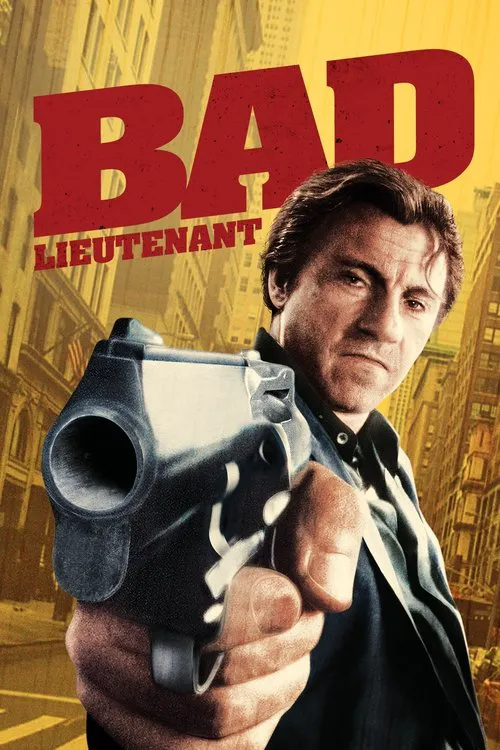Bad Lieutenant

Plot
Bad Lieutenant, directed by Abel Ferrara, is a 1992 crime drama film that tells the story of a morally corrupt police lieutenant, Michael "Mike" Boyle, played by Harvey Keitel. Mike is a New York City police officer who is struggling with a severe addiction to heroin and gambling. On one fateful day, he stumbles upon a young nun's rape case that sets him on a path of redemption, or so it seems. The film begins with Mike's typical day, where he's seen injecting himself with heroin and engaging in high-stakes poker games. These scenes portray Mike's desperate attempts to cope with his crippling addiction. He's also shown as being ruthless and cunning in his pursuit of perps, often using unorthodox methods to get the job done. However, Mike's life takes a turn when he's assigned to investigate the brutal rape of a young nun, Sister Gallo. As he delves deeper into the case, he becomes emotionally invested in finding the perpetrator and bringing them to justice. This newfound sense of purpose triggers a glimmer of hope in Mike, and he begins to see his addiction and the corrupt lifestyle he's been living as a liability. Despite his efforts, Mike finds it challenging to maintain a level of sobriety, especially when faced with a life-threatening situation that requires him to make a crucial decision. This moment is a pivotal point in the film, where Mike has the opportunity to redeem himself and demonstrate a sense of compassion and empathy. However, just as things are looking up for Mike, he's back to his old ways, struggling with his addiction, and compromising his integrity as a police officer. Through Mike's experiences, Ferrara explores themes of addiction, redemption, and the blurred lines between good and evil. Mike's downward spiral serves as a commentary on the cyclical nature of addiction and how it can consume an individual. On the other hand, his attempts to change and find forgiveness raise questions about the possibility of redemption and whether it's ever too late to make amends. One of the most striking aspects of the film is its raw and unflinching portrayal of Mike's struggles. Keitel's performance is a tour de force, conveying the character's vulnerability and desperation through his body language, facial expressions, and dialogue. Ferrara's direction is equally impactful, using long takes and observational filmmaking to immerse the audience in Mike's world. Meanwhile, the character of Sister Gallo serves as a catalyst for Mike's introspection and attempts at redemption. Her rape is not just a crime, but a symptom of the larger, systemic issues that Mike is complicit in. Through her character, Ferrara critiques the ways in which the Catholic Church and societal institutions enable and perpetuate crime and abuse. The film's tone is stark, unflinching, and often disturbing, capturing the bleakness of Mike's world. However, beneath the surface lies a sense of hope and humanity, as Mike grapples with his addiction and the moral decay that surrounds him. The cinematography is equally striking, with Ferrara making use of New York City's gritty streets and dingy bars to create a sense of foreboding and despair. Ultimately, Bad Lieutenant is a gripping and unflinching portrayal of addiction and redemption, one that defies easy resolution or moral certainty. Ferrara's direction and Keitel's performance are a masterclass in conveying the complexities of the human condition, leaving the audience to ponder the true nature of Mike's character and the morality that lies at the heart of the narrative.
Reviews
Recommendations





